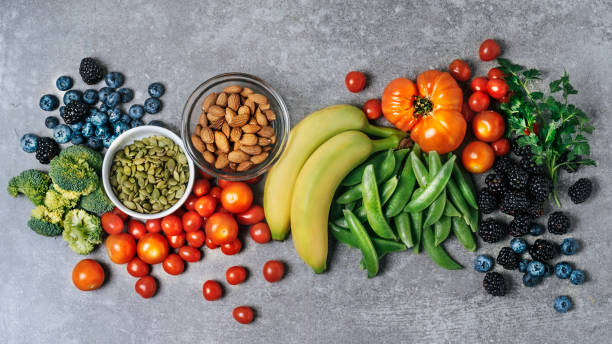What are Antioxidants?
Antioxidants are used to protect our cells. They protect our organism from free radicals. Free radicals, with their attack on our cells, can render them inoperative.
This will make us vulnerable to diseases. That is why it is important to protect our body from ingesting enough antioxidant
What are free radicals?
Free radicals consisting of oxygen-containing molecules what lack an electron. They attack with enormous speed an intact molecule to steal the missing electron. This process is called oxidation and as soon as it crosses a limit, the amount of which burden the body, we speak of oxidative stress
Antioxidants are in demand here!! They serve to protect against free radicals! Only they can stop the chain reaction.
How do ANTIOXIDANTS work?
The antioxidants jump when the free radicals go prey-catching. They voluntarily give you an electron. Antioxidants release your electrons faster than those of a cell, thus protecting the cells. In contrast to the body’s own molecules, they never steal their released electron from others. They are automatically returned to antioxidant form and thus prevent a harmful chain reaction
How That?
If a vitamin E antioxidant becomes a “radical” object for a short time, the vitamin C immediately docks to restore it to its original form.
It is therefore of great importance that there are always enough antioxidants.
This is important nowadays. Due to the hectic pace, stress and fast food diets, we run the risk of ingesting too little antioxidants.
Harmful environmental influences, such as car exhaust, industry smog do the rest to increase our exposure to free radicals. For each free radical we need an antioxidant for protection.
Antioxidants in our food
In our daily food, we miss a balanced amount of antioxidants. Although grains, milk and meat produce enough protein, fats and carbohydrates, our food chain lacks sufficient vegetables, seedlings, nuts, fruits and natural oils. These foods contain an optimal source of antioxidants. It is important that we start eating more of these anti-oxidant foods to protect us from disease and premature aging.
These include, for example, salads, vegetables, herbs, fruits, sprouts, nuts, oilseeds and natural oils and fats
Among the most well-known antioxidants is vitamin C. It is not the best antioxidant. More stronger effect have: Enzymes and polyphenols ( flavonoids, anthocyanins, isoflavones).
The 5 groups of the most important antioxidants:
-
- Vitamins
-
- Enzymes
-
- Minerals
-
- Trace elements
- Phytochemicals:
are formed by the plants to protect them from pest infestation, such as Protect insects or fungus. Furthermore, the plant dyes belong to the secondary plant substances, which are also effective for human Organisms and help to stay healthy.
The 10 best-performing antioxidants
1. Vitamin E and C
Rich in vitamin E is Coconut oil, as well as Wheat germ Oil, Hazelnut Oil and paprika, citrus fruits, rose hips, sea buckthorn.
2. Trace elements such as iron, zinc, selenium
Trace elements such as iron, zinc or selenium only have an antioxidant effect as part of an enzyme. Glutathione perioidase, for example, is a selenium-containing enzyme that protects the cell walls with its defence system.
3. Grape seeds with its phytochemicals flavonoids: the OPC
The effect of OPC is many times; about 20 times higher than that of vitamin C and 50 times higher than that of vitamin E. Grape seed oil contains a high number of these. OPC and vitamins mutually reinforce each other in the fight against free radical.
4. Anthocyane: the purple-blue natural plant dye.
Anthocyanins, a flavonoid that occurs in the violet dye of flowers and berries, such as Cherries, grapes, eggplant, antioxidant. The largest proportion contains the Aronia berry. A cure with aronia berries over min. 3 months, protects against cold in the winter months
5. Carotenoids
Carotenoids are the red and orange plant dyes that occur in red, orange plants but also in green plants
Beta-carotene occurs in red and orange plants, such as carrots, peppers, and green cabbage is the leader in green crops
Lutein and zeaxanthin are 2 carotenoids found in the human body, especially in the yellow spot in the retina. They work in the eye and protect there against free radicals, which come in by the incoming light. Since these two carotenoids cannot be produced by the body itself, it is important that we absorb them with our food. Especially in spinach and cabbage, these carotenoids occur. They protect against cataracts and also serve to maintain visual acuity.
Lycopene is an antioxidant which is said to have a protective property against prostate diseases. It contains in tomatoes, as well as papaya.
Astaxanthin is a special antioxidant for protecting the skin, It is considered a natural sunscreen.
We need the sun’s influence to replenish our vitamin balance, so providing astaxanthin is very important. Pink fish and seafood contain astaxanthin
6. Glutathione and SOD
Glutathione consists of 3 amino acids and is the strongest antioxidant. It has the task of returning vitamin C to its antioxidant form when it can no longer react as an antioxidant. It acts as an anti-aging agent
SOD is an enzyme, which together with glutathione peroxidase belongs to the detoxification system of the body. It is a powerful antioxidant that can be made by the body itself.
7. Allicin
Allicin is found in leeks, onions and garlic. It belongs to the sulfides and prevents with its vascular protective effect, a heart attack, stroke and arteriosclerosis
8. Flavonoids
You can find flavonoids in almost all vegetables and fruits, but especially in citrus fruits, parsley, onions, pepper and in green tea. Isoflavones, for example in linseed and soy products, they also belong to the flavonoids.
9. Phenolsäure
The pomegranate contains a high amount of phenol acid. In addition, one finds a significant amount in inter alia: lemon tea, pineapple, grapes, cherries, berries and nuts, salads, cabbage
10. Sulforaphane
Sulforaphane is found mainly in spicy vegetables such as radishes, horseradish, cress, mustard and cabbage. Sulforaphane helps to detoxify the liver.
